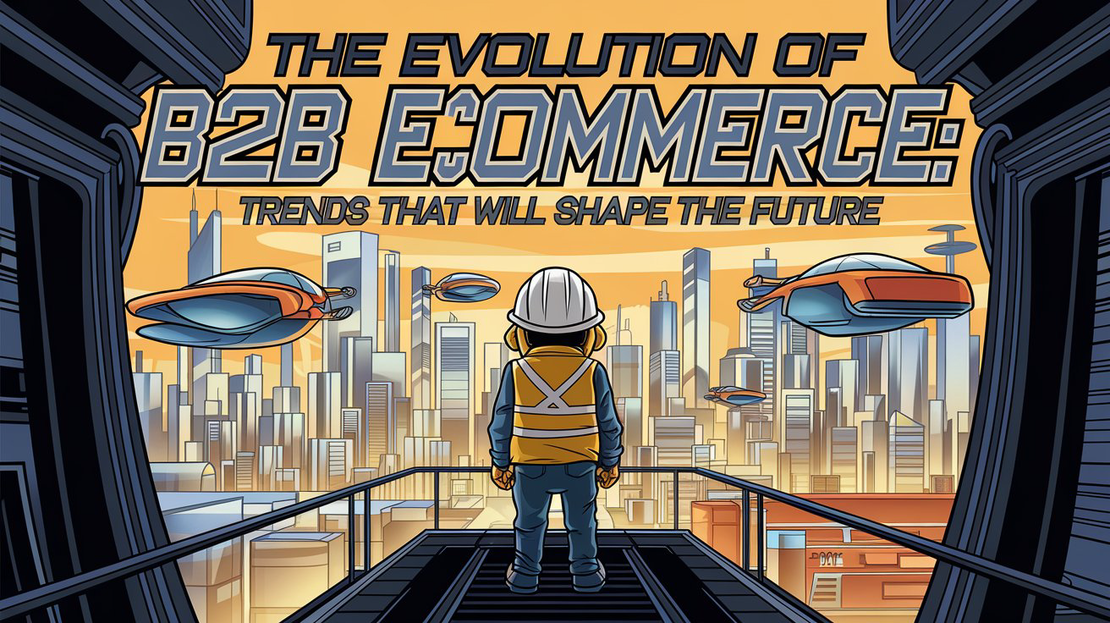
The Future of B2B Ecommerce: Unveiling Transformational Trends
- Lukasz Pawlak
- Technology , Trends , E commerce
- December 5, 2024
Table of Contents
As B2B ecommerce continues to evolve, staying ahead of trends is crucial for success. This article examines the latest trends shaping the B2B ecommerce landscape, such as the rise of AI-driven personalization, mobile commerce, and the increasing importance of online marketplaces. Gain insights into how these trends are revolutionizing purchasing behaviors and influencing supplier-buyer relationships. We also discuss practical steps businesses can take to adapt and leverage these trends for enhanced operational efficiency and improved sales outcomes in the B2B sector.
The Power of AI-Driven Personalization in B2B Ecommerce
In today’s competitive landscape, integrating AI tools into B2B ecommerce is transforming customer service. These technologies help businesses provide personalized experiences at scale, effectively meeting the varied needs of clients across multiple channels.
Recent findings show that 50% of B2B buyers expect personalization similar to what they experience in B2C environments. This highlights the pressing need to create relevant customer journeys that truly resonate with buyers. For example, a manufacturing company using AI can:
- Analyze purchasing patterns
- Recommend products that fit a client’s specific needs
- Enhance engagement and satisfaction
As businesses focus more on customer-centric strategies, utilizing data analytics through AI not only smooths interactions but also fosters long-term relationships. When clients feel understood and valued, they’re more likely to stay loyal and contribute to ongoing revenue growth.
Ultimately, the move towards AI-driven personalization reflects a broader trend in B2B ecommerce. Understanding and catering to individual buyer preferences is no longer just a nice-to-have; it’s essential. This approach not only improves the customer experience but also positions companies to succeed in a constantly changing market.
The Impact of Mobile Commerce on B2B Purchasing Behavior
Mobile commerce is changing the way B2B transactions happen.
In 2023, a remarkable 80% of buyers said they used mobile devices during their purchasing journeys. This trend shows that decision-makers are turning to their smartphones and tablets to:
- Research products
- Compare prices
- Finalize purchases, often while on the go.
The importance of this shift is huge. Businesses that don’t optimize their platforms for mobile risk losing a significant number of potential customers. In fact, over 50% of B2B transactions were completed on mobile devices as early as 2021, highlighting the urgent need for user-friendly mobile interfaces.
Take, for example, a logistics company that redesigned its website to be mobile-responsive. This change allowed clients to easily manage their orders and track shipments from their phones, leading to a 30% increase in repeat purchases.
As mobile commerce continues to expand, adapting to this change isn’t just a good idea; it’s essential for staying competitive. Companies that invest in mobile capabilities are likely to see better engagement and conversion rates, paving the way for long-term partnerships in an increasingly digital B2B world.
Harnessing Online Marketplaces: Strategies for B2B Success
Online marketplaces are becoming increasingly important in B2B e-commerce, accounting for 62% of sales in 2022. This highlights the necessity for businesses to carve out their space in these digital platforms.
To succeed, companies should focus on optimizing their product listings. This means making them not only visually appealing but also packed with relevant keywords to improve searchability.
Investing in marketplace-specific strategies can significantly boost visibility, including:
- Targeted promotions
- Participation in seasonal sales events
For example, a wholesaler that took advantage of marketplace tools saw a 25% increase in sales by customizing their listings to fit the unique needs of each platform’s audience.
These practices not only drive sales but also enhance brand visibility in a competitive online landscape.
Summary
The evolution of B2B ecommerce is increasingly shaped by the integration of AI, mobile commerce, and online marketplaces. AI tools are revolutionizing customer service by enabling personalized experiences that resonate with B2B buyers, who now expect the same level of customization as in B2C sectors. This shift raises critical questions about how effectively businesses can harness data analytics to build lasting relationships and drive loyalty.
Mobile commerce is another game-changer, with a staggering 80% of buyers utilizing mobile devices throughout their purchasing journeys in 2023. This trend underscores the necessity for companies to optimize their platforms for mobile users to avoid losing potential customers. How can businesses ensure their mobile interfaces are intuitive and engaging?
Furthermore, online marketplaces accounted for 62% of B2B sales in 2022, highlighting the need for strategic visibility within these platforms. What innovative tactics can companies employ to enhance their product listings and leverage seasonal promotions effectively? As the landscape continues to evolve, these considerations will be vital for maintaining competitiveness and fostering growth.


